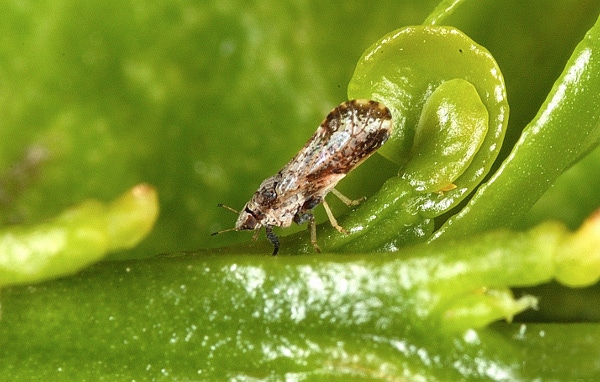
Asian citrus psyllid pest spreads in Arizona
The Asian citrus psyllid insect pest is found in Mohave County, Ariz., with additional finds in Yuma County.The tiny psyllid, no larger than a grain of rice, is the primary carrier of a bacteria which causes Huanglongbing disease (HLB), also called citrus greening.With the Lake Havasu City find, the State of Arizona expands its ACP quarantine which limits the movement of citrus plant material found within the quarantine boundary.
March 1, 2013

There is an increase this year in detections of the Asian citrus psyllid (ACP) in western Arizona.
The Arizona Department of Agriculture (ADA) reports new detections of the citrus pest in Yuma County, plus for the first time detections in Lake Havasu City (Mohave County).
The tiny psyllid, no larger than a grain of rice, is the primary carrier of a bacteria which causes Huanglongbing disease (HLB), also called citrus greening. HLB is found in every citrus-growing region of the world. Every tree infected with HLB eventually dies.
With the Lake Havasu City find, the State of Arizona has expanded its ACP quarantine which limits the movement of citrus plant material found within the quarantine boundary.
The new quarantine area includes a 20-mile area around Lake Havasu City, from approximately 10 miles north of Interstate 40, south to the Avi Suquilla Airport (north of Parker in La Paz County), and all areas west of Alamo Road.
There is an established quarantine area in the southwestern portion of Yuma County.
The destructive psyllid threatens Arizona’s commercial citrus industry, citrus trees in neighborhoods, and citrus nursery stock.
Citrus adds nearly $37 million to the Arizona economy.
In October 2009, the ACP was first found in the Grand Canyon State in the border town of San Luis (Yuma County). Quarantine and control measures established by the ADA helped halt the spread of the pest.
Since then, the ADA and partners have maintained a state-wide trapping program.
Until this January, only single ACP adults were found (17 locations in all) with no repeat detections at any of those sites.
The ACP is found in Arizona and California. A single case of HLB was found last spring near Los Angeles. HLB has not been found in Arizona.
The ADA requests public assistance in controlling the spread of the pest. Purchase only inspected, certified citrus nursery stock for home planting. Do not ship personal citrus plants (including grafting material) or homegrown citrus fruit without certification from a regulatory official.
For more information on Arizona’s quarantine and ACP work, visit the ADA website.
For more information on citrus health issues, including HLB, visit www.saveourcitrus.org.
About the Author(s)
You May Also Like





